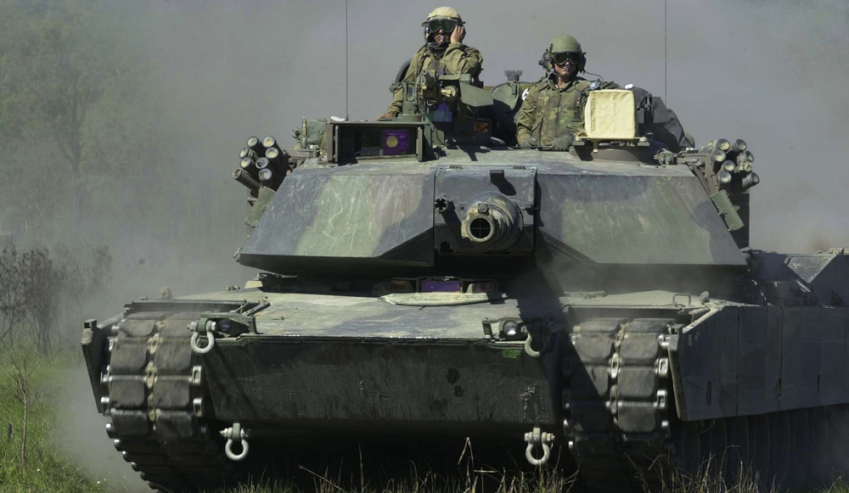The US inked $55.6 billion worth of foreign military sales during FY2018, smashing the previous year’s total with growth expected continue into the future, as the Pentagon and State Department green light more foreign sales.
To continue reading the rest of this article, please log in.
Create free account to get unlimited news articles and more!
The $55 billion represents closed deals, many of which had been in the works for years. But the focus of the administration on trying to pump up US arms sales in order to boost domestic manufacturing jobs has led to officials across the Pentagon and State Department to proclaim pushing American kit is a big part of their international engagements.
The total sales figure includes all sales executed through the FMS program to include: $3.52 billion for cases funded by the State Department’s Foreign Military Financing Program; $4.42 billion for cases funded under Defense Department authorities; and $47.71 billion funded by partner nations.
Lieutenant General Charles Hooper, director of the Defense Security Cooperation Agency (DSCA), said he was "optimistic that this positive trajectory will continue in the future, partly because some of the administrative costs have been curtailed."
In FY17, the US sold $41.93 billion in FMS deals, and the Pentagon has not been shy about hyping the final dollar total for this year. In July, LTGEN Hooper said the department had already inked $46.9 billion in deals, and a Pentagon report released last year said that the US had inked $54.45 billion through the end of August.
On 19 April 2018, the administration updated the Conventional Arms Transfer Policy, which lays out a series of activities the administration will take to ensure arms transfers support US allies and foreign partners, expand opportunities for American industry and create new American jobs.
While the 2018 total represented a huge increase over 2017, it did not set a record. That honour goes to 2012, which saw $69.1 billion worth of weaponry sold overseas. That year is something of an outlier, however, as it saw Saudi Arabia ink a $29 billion deal for 84 F-15s – a single line that sent the total rocketing up from $40 billion.
In FY18, the State Department cleared roughly $70 billion in potential FMS deals, spread over 70 individual requests. Those are not hard dollars, but rather a listing of the potential agreements that the State Department has OK’d; if Congress does not object, those potential deals then go into negotiations.
Among those requests are a Saudi request for THAAD ($15 billion) and a Polish request for Patriot PAC-3 batteries ($10.5 billion), either one of which would give a massive boost for a potential FY19 total if completed on time.
The growth is expected to continue, with 14,556 FMS “open cases” being worked by DSCA, which likely include ongoing negotiations and talks with foreign governments for everything from spare parts to aircraft.
"There has never been better co-operation between industry and the interagency. In my experience, there has never been a time where there has been as much alignment, and as much co-operation between Congress, the White House, Pentagon and the State Department," LTGEN Hooper exclaimed.
FMS is a security assistance program authorised by the Arms Export Control Act under the authority of the Secretary of State. The US uses FMS to further US foreign policy and national security objectives through sales of defence articles, defence services and military training to foreign countries and international organisations.
LTGEN Hooper said, "The United States not only sells the world’s most state-of-the-art defence systems, but we also strengthen our alliances and attract new partners through enduring strategic and defence partnership."
Stephen Kuper
Steve has an extensive career across government, defence industry and advocacy, having previously worked for cabinet ministers at both Federal and State levels.

 Login
Login








